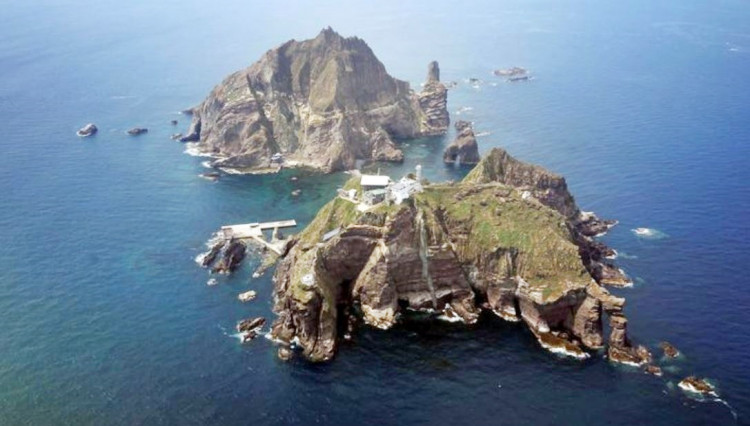Uneasy allies Japan and South Korea have renewed their simmering dispute over the contested Liancourt Rocks called Dokdo by South Korea and Takeshima by Japan.
Japan has reopened its claim to the Liancourt Rocks, a small group of volcanic islets in the Sea of Japan about midway between South Korea and Japan.
The islands have been administered by South Korea since the 1950s but Japan has continued to contest South Korean sovereignty. Japan placed Liancourt Rocks under the jurisdiction of the western Japanese prefecture of Shimane in 1905.
On Monday, Japan staged the annual Takeshima Day ceremony celebrating the date in which it placed the Liancourt Rocks under its supervision to keep alive its claim to the islands.
The islands consist of two main islets called Western Island and Eastern Island, and 35 smaller rocks. Its total surface area covers 0.188 square kilometers (0.07 square miles) with the highest elevation of 168.5 meters (550 feet) on the West Islet.
Liancourt Rocks lie in rich fishing grounds and could contain huge deposits of natural gas.
Yoshiaki Wada, a Japanese Cabinet Office official representing the central government at Monday's ceremony in the prefectural capital of Matsue, assailed South Korea for the "unlawful occupation (of Takeshima) that has no legal basis whatsoever under international law."
"It is totally unacceptable," he said.
Shimane Gov. Tatsuya Maruyama also criticized South Korea's occupation of the islands, including naval drills offshore as "an attempt to make the occupation of Takeshima as an accomplished fact."
He called on the government of Prime Minister Yoshihide Suga to resolve the half-century old dispute through diplomacy. Chief Cabinet Secretary Katsunobu Kato said Japan is determined to protect its territorial rights.
"Takeshima is clearly Japanese territory under international law and in light of historical facts," he said. "In order to solve the Takeshima problem, it is important to obtain the international community's correct understanding."
On the other hand, South Korea's Ministry of Foreign Affairs attacked Japan for continuing "futile provocations" by holding the event. It demanded the event be abolished and said it's clear the island is South Korean territory because of "history, geography and international law."






